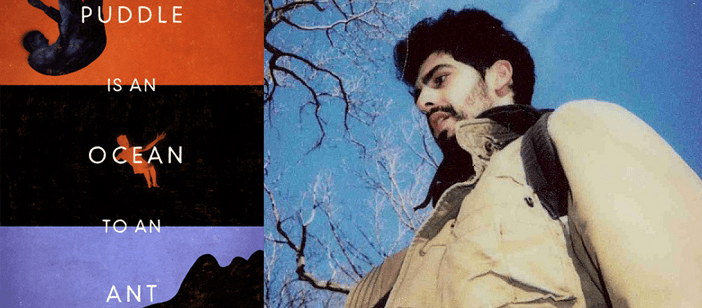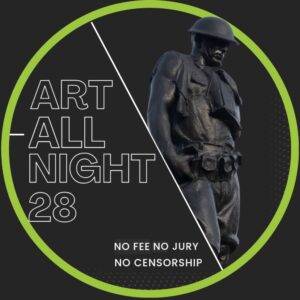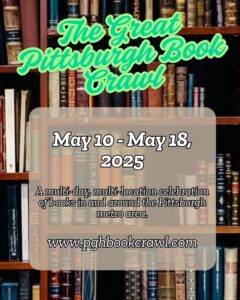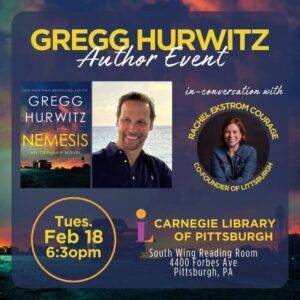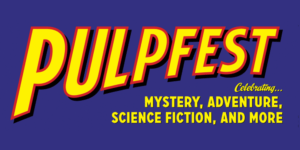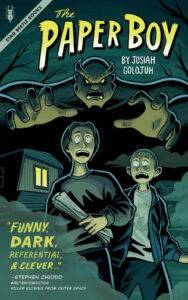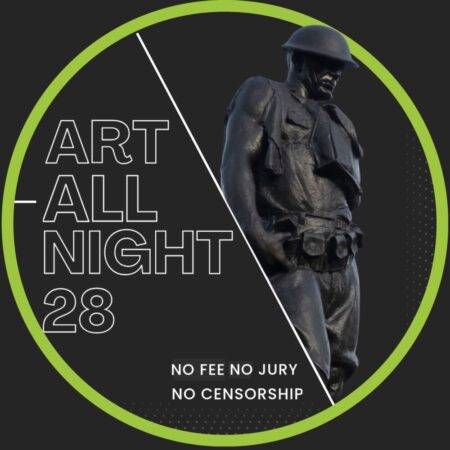From the publisher: “Puddle Is an Ocean to an Ant is the first and last book of its kind by Cal LaFountain. This scattered journey drifts from Tennessee to North Carolina to Vermont, exploring an aimless American life after college. A series of audio travel stories dissects the tension that results when persona collides with reality, the webs of addiction, and the burden of striving to establish a world of one’s own.”
Don’t miss out: Check out the Cal LaFountain’s book launch at White Whale Bookstore on Wednesday, March 25th, 2020 at 7 PM (featuring readings from local authors miss macross and Mike Good)!
About the Author: Cal LaFountain has created works for the Electronic Literature Organization, Information Today, Legowelt’s Shadow Wolf Cyberzine, and other literary and multimedia outlets. He has an Alexa flash briefing called “Language Wave” and is currently at work on a series of audiobook remixes and literary prank phone calls. His cut of the cloud is callafountain.com.
Xocord Publishing spoke with Cal LaFountain about his audiobook, Puddle Is an Ocean to an Ant, the role of audio in modern literature, and the financial hurdles of writing…
What was the motivation behind Puddle Is an Ocean to an Ant?
After college, instead of getting a job or an MFA, I chose to bounce around uncool parts of America. I knew I only had my mid-twenties once. There was no better time to sleep in a chicken coop infested with mice and spend dreadful hours in Greyhound stations. I hadn’t lived much of a life outside of a classroom, so I took the wager to live a few years and write about it.
Why did you choose to craft it as an audiobook?
I like when technology recycles primitive expressions. A book is a place to say something biting about yourself in the hopes that it might connect with another person. An audiobook is a place where ancient storytelling practice resurfaces through technology.
The meat of this project is far from ancient, though. It explores the tangle of the modern world. The context of anxiety and need, for example. I think in the past most human anxieties came from scarcity while the anxieties of the modern world come from excess. I’m hyped to be alive in a time where I can perform a collision of this kind, writing and recording something flawed and awkward.
I also like the idea that people can listen while they’re doing other things. It’s funny to me that Chapter 20 might get interrupted by a petty argument or parts of Chapter 2 might get smothered by the sounds of some Beefy Boy heaving weights in the gym. Audiobooks let sounds from the outside world bleed in to create temporary impromptu soundscapes. I got a text from someone who heard a train when they were walking outside and listening to a section of the book that mentions trains.
Are your other audio projects like the LaFter Library and Language Wave related to literature at all? Or do they exist on their own?
It’s all fun to me, creating a new structure on top of whatever gems the practitioners of literature once hoped to produce. It’s like this quote culture that’s suddenly everywhere online. A person spent a substantial portion of their life writing and editing a book, only for a single sentence to be yanked, Helvetica’d, jammed into a feed, and liked by a sweaty Glenda or Reginald. It’s all distillation. People miss most of what anyone has to say in this life. But to me, that’s a fun starting point.
I went to a reading and I clapped after a poem I liked. Someone tapped me and said, “That’s not how readings are supposed to go. We only clap at the end.” I thought that that hushed sentiment summarized everything stifling about precious literary culture. You go to a comedy show or see a DJ, and you’re expecting to pay a cover charge. Most readings are free. There’s nothing there worth paying for. No electricity. There’s nothing sexy about it.
Building on top of literature is the best way I know to honor its original dream of conveying ideas, human to human. There are probably better ways, like writing a great book, but that’s not my way. I’ll leave that to the people who don’t clap at readings.
I just started an Alexa flash briefing called Language Wave that I update every few days. It’s like a podcast but shorter and less coherent. I’m stocking it with scraps of prank phone calls, sound design experiments, and sentences I’ve sent to get slaughtered in shoddy home recording booths by amateur voice actors who barely speak English.
The LaFter Library is something I’ll do on-and-off until I die. There’s no one angle to it. It’s a collaborative social project that gets me out of myself and reminds me that none of this is serious and all of it ends. It could be sound therapy in one context, or a cultural store of data, or a study on how people act when a microphone’s in front of them. Or it could just be a good excuse to throw a party.
How do you handle the financial challenges of writing?
I’m grateful to live in an era with abundant opportunities. I’ve put significant effort into avoiding a “career” so I can have sovereignty over my day. It’s as much about developing a mindset as it is about learning techniques to generate income. I’m willing to accept high levels of uncertainty in exchange for a full day with total personal agency. I prefer to make money in bursts, followed by stretches of open time for creating and thinking and drinking and shenanigans.
When I first got my place in the city, on the weekends I’d rent it out on Airbnb and stay in the casino overnight flipping the profits in blackjack. I slept on an air mattress for four years. I’ll live in a hole if it comes to that. I ghostwrite. I flip sneakers, electronics, and clothing. I trade cryptocurrencies. I bet on sports.
I’m no expert at these things, but I combine them to create free time for myself. I’m working on a PDF called The Digital Hunter-Gatherer. I tried working normal jobs, but for now, I prefer the risk at the edge of grifts and gigs. I like the challenges it presents and the ingenuity it wrings out of me.
What’s next?
I remembered how much I like making videos, so I’m going to make more videos. I have a vision for a shot of a hundred people headbanging to the final breakdown in Meshuggah’s I. In high school woodshop, there was this dude we called Shy Kid. One day when I was on the bandsaw Shy Kid gave me a CD-R. It didn’t have any writing on it and it only had one song: I by Meshuggah. When I heard it, it was like I finally understood everything about Shy Kid.
I’d like to go be tropical for awhile. Maybe I’ll go to Bermuda. Maybe I’ll think about a new writing project, or maybe I won’t. I’m content to let things germinate. I’m okay with regenerating in whatever shortsighted, wasteful ways I need to. I’d like to get away from writing and back to life for a bit. That seems good, Bermuda.
For more from Cal LaFountain, visit callafountain.com…


